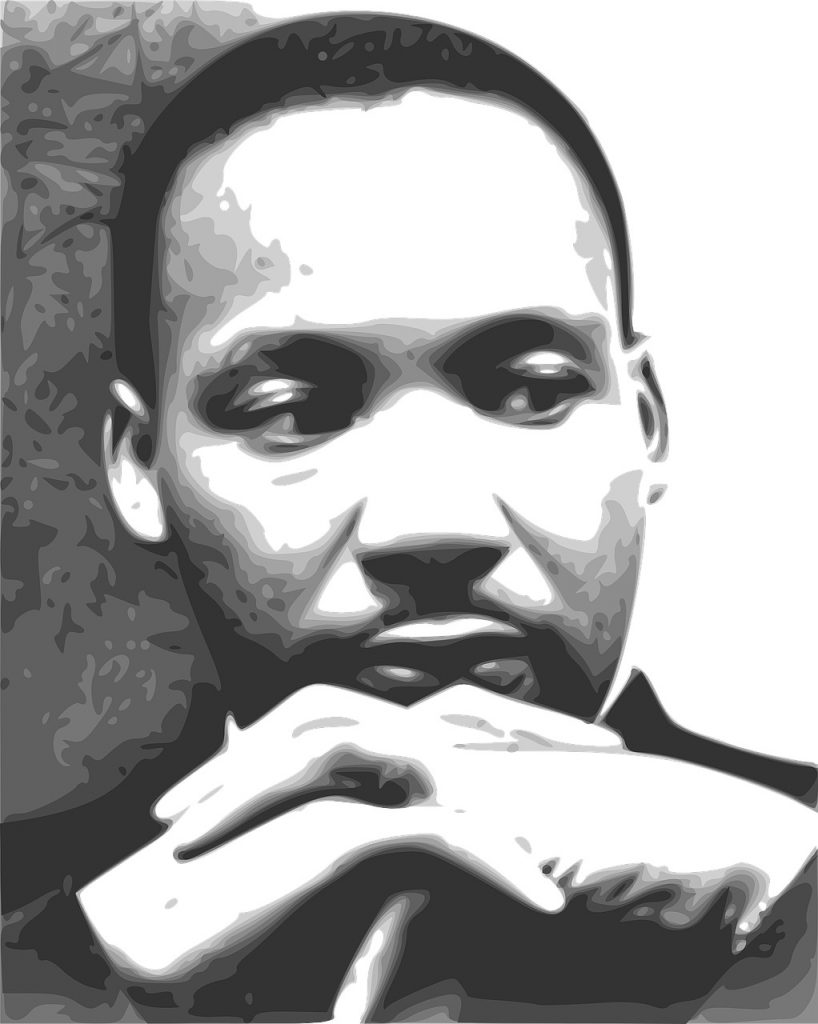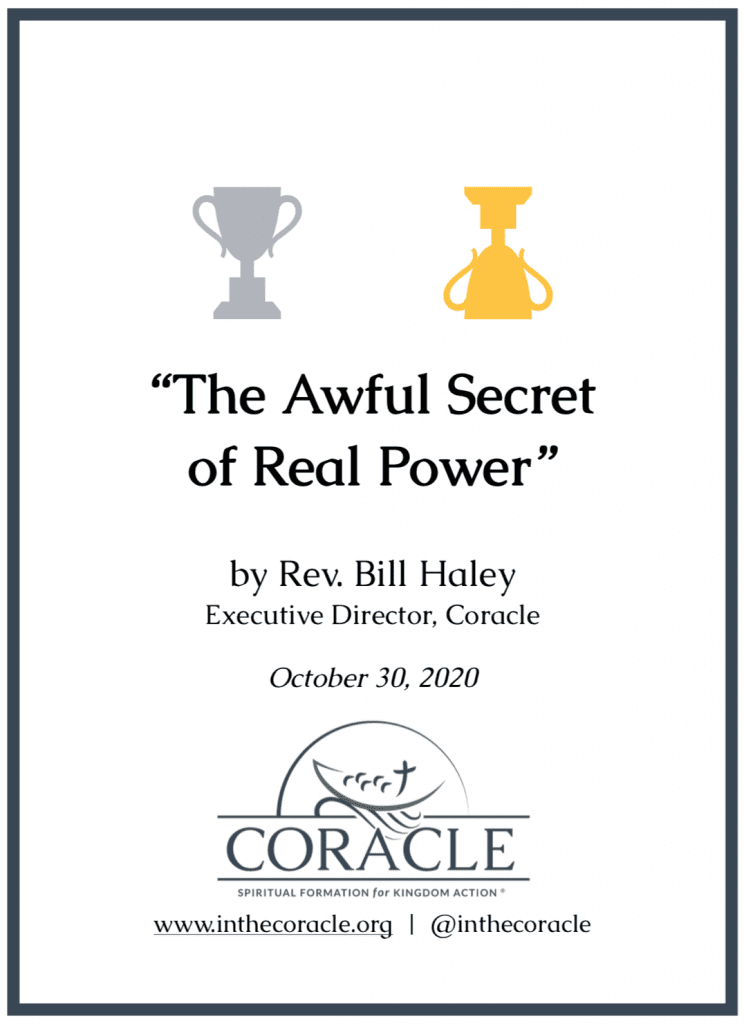If your life is going great right now and all is well and you feel like you’re up for anything and can do most anything, stop reading and file this away for when that season ends and life feels quite a bit more overwhelming, or maybe read on and remember it for later when you’ll need it!
But if you feel overwhelmed and weak and life or some specific circumstance seems too much to bear right now, and you’re wondering how much longer you can keep up like this, then I have good news and bad news. The good news is that God’s power meets us in our weakness. The bad news is that you actually have to BE weak for that to happen.
I have discovered the secret of unlocking God’s power, and at this point, I hate it. At this point, it feels like a dreadful revelation. At some point, however, I hope to be content with it, even rejoice in it, and even boast about it, like St. Paul.
. . . . .
The latter part of 2 Corinthians (chs 11-12) is strange, and Paul didn’t intend to write it. He’s writing freestyle, straight from his heart out of frustration and indignation, frothing at the pen. His words are passionate, fiery, a potent mixture of love and anger, and he pauses every now and then to interject just how foolish, even crazy, he feels that he finds himself saying such things. His apostolic authority has been challenged by some in the church in Corinth, and in chapter 10 he defends his ministry calmly and gently, even meekly. Then in chapter 11, he lets himself go, “I wish you would bear with me in a little foolishness. Do bear with me!” (v1)
The whole way through, Paul is incredulous that he’s saying what he’s saying. He’s been goaded into revealing more than he wanted to or meant to. This is where he feels forced to justify his credibility by offering the litany of his sufferings (11.23-33) and where he speaks of something he never intended to share, that of being taken up to the third heaven (12.1-4). That experience was so profound that it would tempt one to hubris, so Paul was given a thorn in the flesh to keep him from pride. Paul didn’t like it, didn’t want it, and asked three times for it to be taken away, and God answered simply and bluntly, “No.” God’s response to Paul’s petition had nothing to with the thorn itself. Rather, Paul was given a fundamental insight with God’s very own words:
But the Lord said to me, “My grace is sufficient for you, for my power is made perfect in weakness.” Therefore I will boast all the more gladly of my weaknesses, so that the power of Christ may rest upon me. For the sake of Christ, then, I am content with weaknesses, insults, hardships, persecutions, and calamities. For when I am weak, then I am strong. (2 Cor. 12.9-10)
Paul didn’t mean to reveal such intimate knowledge he had been given, a direct revelation from God to him. He said more than he intended to. His very next words in verse 11 read, “I have been a fool! You forced me to it…” I’m glad that those in Corinth pushed Paul’s buttons so much that he lost control of his pen and went farther than he would have otherwise, because he gives us the secret to witnessing and experiencing God’s power in and through our lives.
The secret is to be weak. And that’s a huge problem! In order for Christ’s presence to dwell powerfully in us and for his power to go mightily out through us, we must not only feel weak or know that we are weak but actually BE weak. And who wants to feel weak, let alone be weak? Who wants to experience that in a season? Who wants to live weak as a lifestyle?
To be weak is to viscerally know that you are actually weak, that you actually can’t do it, whatever the “it” is.
To be actually weak is to have moved past the ability to say much more than “God I need you,” because to say more would take strength you don’t have.
It is to literally feel like you’ve got two tons carried on each shoulder, and you can’t walk without feeling that burden about to crush you to your knees and to the ground.
It is to feel a tightening in the chest and a trembling in your limbs and a quickened heartbeat.
To be weak in the way that Paul is talking about it is to feel it physiologically.
It’s to be fundamentally unsure about what to do or how your actions are going to turn out.
It’s to go to bed exhausted even while knowing that the same burden is going to be there in the morning to be picked up.
It’s to know, deeper than knowing, that you just can’t do it.
It’s not only to come to a breaking point, it’s to live at the breaking point.
. . . . .
 Martin Luther King, Jr. came to that place one night in Montgomery, Alabama. He was a couple of years into being the spokesman for the civil rights efforts in that city and had just settled into bed when he got a phone call. A voice said, “Listen, n——, we’ve taken all we want from you; before next week you’ll be sorry you ever came to Montgomery.” He’d gotten those threats before but this one really rattled him, and he got up, went to the kitchen, reheated some coffee, and prayed out loud,
Martin Luther King, Jr. came to that place one night in Montgomery, Alabama. He was a couple of years into being the spokesman for the civil rights efforts in that city and had just settled into bed when he got a phone call. A voice said, “Listen, n——, we’ve taken all we want from you; before next week you’ll be sorry you ever came to Montgomery.” He’d gotten those threats before but this one really rattled him, and he got up, went to the kitchen, reheated some coffee, and prayed out loud,
“Lord, I’m down here trying to do what’s right. I think I’m right. I am here taking a stand for what I believe is right. But Lord, I must confess that I’m weak now, I’m faltering. I’m losing my courage. Now, I am afraid. And I can’t let the people see me like this because if they see me weak and losing my courage, they will begin to get weak. The people are looking to me for leadership, and if I stand before them without strength and courage, they too will falter. I am at the end of my powers. I have nothing left. I’ve come to the point where I can’t face it alone.”
That’s what it feels like to be weak in the way that Paul is talking about. There’s nothing romantic about it. It’s awful.
It’s akin to other ways that we describe certain spiritual dynamics that all-too-easily roll off our tongues while their true experience is horrible. To be actually ‘refined’ is to actually feel like you are in and on fire. To be actually ‘pruned’ is to feel like you’re actually having a limb (like an arm or a leg) sawn off. To actually undergo the ‘death of self’ feels like you’re, well, actually dying.
To be weak is not only to feel but to truly know you just can’t do it. This is the place where God’s power truly enters in, where God speaks and God empowers, where God gives us his strength to do what we truly cannot do on our own.
Jesus spoke to King in his kitchen that night and said some things directly (the whole story is here). King recalled in his autobiography, “I heard the voice of Jesus saying still to fight on. He promised never to leave me alone. At that moment I experienced the presence of the Divine as I had never experienced Him before. Almost at once my fears began to go. My uncertainty disappeared. I was ready to face anything.”
Three nights later a bomb went off on the porch of their family home. “Strangely enough, I accepted the word of the bombing calmly. My religious experience a few nights before had given me the strength to face it.”
For King, these sorts of challenges were the norm and not the exception.
. . . . .
 For Paul too, his lifestyle was one where he was often in circumstances that not only made him feel weak but where he actually was unable to rise to those challenges except with God’s help and power. Speaking of hardships he endured in Asia, he recounted (without hyperbole), “We were so utterly burdened beyond our strength that we despaired of life itself. Indeed, we felt that we had received the sentence of death. But that was to make us rely not on ourselves but on God who raises the dead.” (2 Cor. 1.8-9)
For Paul too, his lifestyle was one where he was often in circumstances that not only made him feel weak but where he actually was unable to rise to those challenges except with God’s help and power. Speaking of hardships he endured in Asia, he recounted (without hyperbole), “We were so utterly burdened beyond our strength that we despaired of life itself. Indeed, we felt that we had received the sentence of death. But that was to make us rely not on ourselves but on God who raises the dead.” (2 Cor. 1.8-9)
A couple of chapters later, Paul reflects that the frailty of our humanity is precisely so that our ability to rise to life’s challenges can reveal God’s power and not ours. “We have this treasure in jars of clay, to show that the surpassing power belongs to God and not to us.” Look at the words he chooses to describe his experience of living constantly weak, “We are afflicted in every way, but not crushed; perplexed, but not driven to despair; persecuted, but not forsaken; struck down, but not destroyed; always carrying in the body the death of Jesus, so that the life of Jesus may also be manifested in our bodies.” (2 Cor. 4.7-10)
Once Paul realized that it was only through being weak that God’s power would flow to him, only then could he be content with being weak, even gladly boasting in the fact of how weak he was. “I am content with weaknesses, insults, hardships, persecutions, and calamities. For when I am weak, then I am strong.”
Read each one of those words carefully.
When I can’t do it, I’m OK with that.
When people say mean things about me and to me, I’m OK with that.
When life is hard, I’m OK with that.
When I’m unjustly suffering, I’m OK with that.
When crises happen that I wish wouldn’t have happened, I’m OK with that.
Why? Because all those things make me feel weak and remind me that I actually am weak, and that’s when God’s strength begins to operate, and God is so much stronger than I am.
Paul is describing a lifestyle of being weak. Earlier I asked who wants to live like that as a way of life?
I don’t, except that I kind of do, because I know what it’s like to be living in God’s strength versus my own, and it is a universe of difference, and the quality of the fruit is not comparable.
. . . . .
This year has been one when all of us have felt awfully burdened much of the time. I was already feeling pretty spent a few weeks ago when I got some news that was unusually heavy and required quite a bit of immediate processing and ongoing attention. I had been scheduled on the following day to give a two-hour presentation on racial issues in America to a group of recent college graduates, a topic that had been totally eclipsed in my brain by the heavy and complicated circumstance I was now needing to navigate unexpectedly. I didn’t have it in me to do the teaching, I didn’t have the emotional bandwidth to engage that particular topic in the way that it should be, I wasn’t at all in that headspace, and I didn’t have any time to prepare.
But this passage from 2 Corinthians came clearly to mind, and I’ve seen God show up before in times like this, and so I prayed, “OK God, you’re going to have to do this one because I’m weak, I’m feeling weak, I’m distracted, I can barely breathe, and I’ve got nothing to give. Please, show up!” I took five minutes to jot down a couple of random bullets.
And God did show up, and with the strength he provided, the talk ended up being one of the best presentations I’ve ever given on race and America in my whole life (and I’ve given a lot of them). Of course, that’s the sort of thing I want to offer all the time, so does that mean I have to be constantly, viscerally aware and convinced of my actual weakness to see that happen? I have a suspicion that’s the case. I don’t want that, except actually, I think I do.
Yes, God’s strength is in fact made perfect in our weakness, that’s in fact when it shows up.
I hope someday to get to that place where Paul ended up and lived– content with his weakness, content in any circumstance, rejoicing even in the circumstances that forced him to rely on God alone. This posture and mindset is something that can be practiced, in fact, it can be learned. “I have learned in whatever situation I am to be content. I know how to be brought low, and I know how to abound. In any and every circumstance, I have learned the secret of facing plenty and hunger, abundance and need.” How? What’s the secret? Here it comes, with little surprise, “I can do all things through him who strengthens me.” (Phil. 4.11-13) Paul can do all things precisely because it’s not him doing them.
“Our business, then, as Christians and as contemplatives– perhaps our only business– is to work tirelessly at becoming destitute and needy orphans who rely only on the mercy, goodness, and power of God.” (The Way of the Disciple, Erasmo Leiva-Merikakis, p21, emphasis author’s)
For those who are feeling weak right now, I’d offer a few suggestions to close this reflection.
-
- Obviously, if you’re feeling weak like this, cry out to God for help, and then move forward, expecting him to come through.
- Do not despise the circumstances that make you feel powerless, they are in fact the things that will drive you to God when you might not otherwise go to him. In this sense, these harder things can actually become our friends, agents to push us towards the source of a greater power than our own.
- Like wet clay is shaped on a wheel by the pressure applied by the potter’s hand, see the pressure you’re facing as being used by God to form you. Even thank him for that, as much as it feels like being pressed!
- It is a dangerous prayer, but it is probably worth praying, “God, lead things to me that will make me rely solely on you. In your great mercy, please protect me from self-reliance. It’s OK if things come that make that impossible, in fact, I welcome them from your hand.”
- When the burdens come, ask not that they would be removed, but rather that our shoulders would be broadened enough to carry them, that God would give us the strength.
- Rely on others to help. I’m impressed by Simon of Cyrene, who helped Jesus carry his cross when he was too weak to do so himself. Often others can’t bear the burden for us, but they can pray for us and for God’s power to intervene.
There’s nothing romantic about going through seasons and circumstances when we feel utterly weak. Yet God shows up, again and again, until there is no more hardship to bear, which is another way of talking about our death. What’s on the other side of our mortal existence gives us great courage to keep on going even when that existence is quite challenging. On the other side, we’ll see that the challenges of our lives were small compared to the glory that awaits us.
Lastly then, however hard it may be or seem or whatever you’re going through or how incapable you feel, be of good courage (cor = Latin for “heart”), don’t lose heart. Paul concludes his thoughts on these things this way:
“So we do not lose heart. Though our outer self is wasting away, our inner self is being renewed day by day. For this light momentary affliction is preparing for us an eternal weight of glory beyond all comparison, as we look not to the things that are seen but to the things that are unseen.”
(2 Cor. 4.16-18)
On the journey,

“SOUNDINGS” posts are aimed at considering together topics that are important for our society, for the Church, and for our own spiritual journeys. To ‘take a sounding’ is a nautical term about using depth to determine where you are and where you’re going. These writings are designed to do just that. Please share this post with friends you think might appreciate it. If you would like to get SOUNDINGS posts from me sent directly to your inbox, click here.

